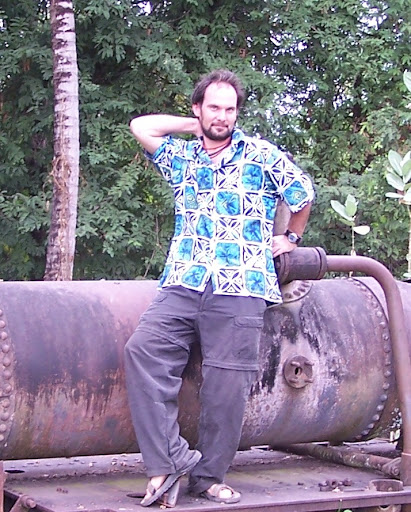Geocaching Explained

The sport of Geocaching explained. A simple little task to enlighten the uninitiated.
To begin, there is always the debate about whether or not Geocaching is, in fact, a sport. The more athletic types refute this claim, but in the simplest terms, Geocaching requires physical travel (ie: body movement), it has rules, and requires specialized equipment. There are also official competitions. By my definition, this meets the criteria of a sport. For further debate on this matter I direct you to the online definition of "sport" on Dictionary.com.
With that debate fully out of the way (forever), I will now explain the sport.
Geocaching involves the finding of objects (either placed or previously existing) using the items geographical co-ordinates. That is to say that cachers acquire the geographical location of the cache from a listing, and use technological devices to physically locate it on the earths surface. Think of it as a global scavenger hunt. This, of course, requires a GPS (unless one is really good at carrying distance from a known datum using other means).
Other devices and information can be employed to assist in the locating of the cache (maps, hints, voodoo, etc...), but primarily, one relies on the GPS.
So as a minimum, to participate you must have:
- a GPS
- a computer with internet connection
Not too much really.
Advanced equipment includes thing such as:
-digital camera (to record virtual caches)
-4-wheel drive truck (to get those out of the way ones)
- pirated mapping software iof local region to use as reference material
etc.....
So with the above (and perhaps a dog or two), you are now ready to go out and find some caches. Firstly, you you must go to the geocaching web page, and get the coordinates for the caches you seek. This being done, you must then enter said data into GPS unit. Now hit the road.
Caches come in a variety of sizes/shapes/containers/forms etc...and thus the difficulty of each specific cache can be (and is) ranked according to two factors: how well it is hidden, and the difficulty of the terrain.
This is perhaps the biggest divide between caches (in my opinion). Some caches are extremely easy to get to, but very difficult to find at that location, while others are relatively easy to find, once a difficult location is reached. This is also largely the difference (in my observation) between urban and rural caching. There are many caches hidden within the urban environment that are extremely easy to get to (take bus, get off at stop, look for cache near newsstand), but extremely hard to find (small magnetic container under newsstand). These present a challenge for those who like to look for things, but I prefer the second type. Those caches that require a moderate hike to a scenic spot, without much of a search. This is rural caching at it's pinnacle.
There is a good reason for this difference. Traffic. Urban caches need to be well hidden so that those not involved in the sport do not find and destroy/vandalize them. Out of the way caches are not likely to be stumbled upon. Unless you like to fight you're way past giant spiders!

Caches can not only be found, but can be placed for others to find. There is a process for this, but it is simple (although a commitment to maintaining the cache is required).
Kira and I (and Sasha, and Kara) recently placed are first cache near a local waterfall. This is my kind of cache. Not to difficult to find (small thermos at base of large stripped cedar), but a pleasant walk. Once you locate which trail it's on, you're pretty much guaranteed a find (we gave hints).

Hints are necessary in this game, because otherwise frustration would lead to cachers killing people. Seriously. GPS's work great in open fields, but in dense forests or steep terrain, they tend to crap out. The trick is to make it findable (yet appropriately challenging).
So is this the sport for you?
If you have a dog, this is the sport for you (I have found more trails to walk Sasha on in the last three weeks that in the last 5 years.
If you like traveling and looking for things this is the sport for you.
(As an aside, it should be mentioned that geocaches exist in most countries on earth. There are 6 in Cambodia, 11 in Laos, and 22 in Bolivia for example).
If you're looking for a justification for purchasing that GPS you bought...this is the sport for you (seriously, either the manufacturers of GPS's thought this up to create a market, or it was consumer response to the purchasing of an otherwise useless toy).
SO thats Geocaching in a nutshell. Try it. Go out and find one of BC's 5772 caches. Get off your lazy butt...it's more fun than TV....seriously.



2 Comments:
Ciao,
I'm so glad I was with you the other day, so I've actually experienced Geocaching(even if I wasn't the one doing the caching).
However, I agree that rural Geocaching looks like a lot more fun than urban Geocaching, and it's
really good for you too.
Love, Mom
Hey brother!
Jeff's brother Joel has a GPS and has done some Geocaching. I'd like to give it a try.
Anything hidden in Rome?
Ciao
Post a Comment
<< Home